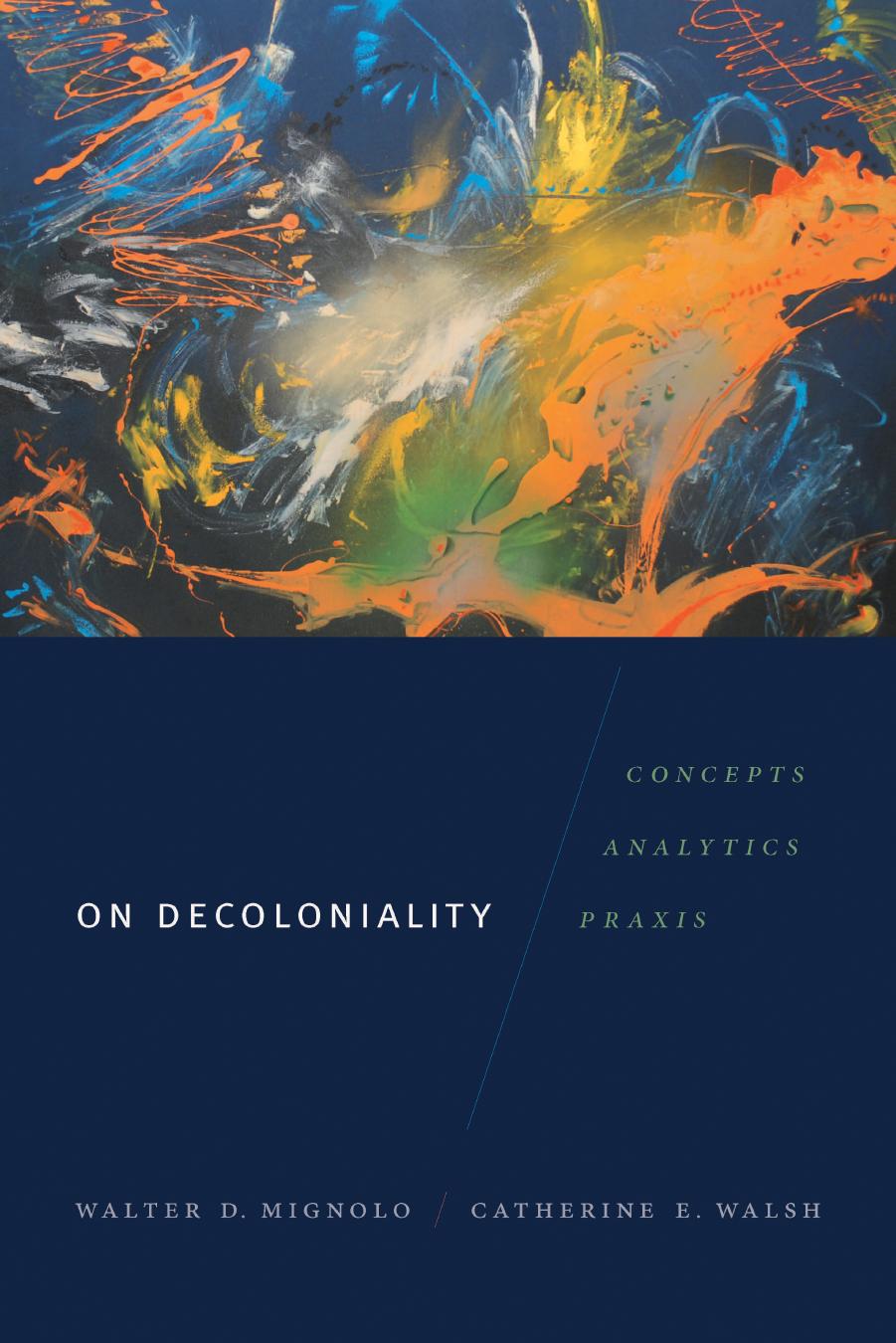October, 174: A Questionnaire on Decolonization (2020)
Filed under survey | Tags: · activism, art, black people, collecting, colonialism, decoloniality, decolonization, eurocentrism, history, imperialism, indigenous peoples, land, museum, postcolonialism, race, slavery, violence
“The term decolonize has gained a new life in recent art activism, as a radical challenge to the Eurocentrism of museums (in light of Native, Indigenous, and other epistemological perspectives) as well as in the museum’s structural relation to violence (either in its ties to oligarchic trustees or to corporations engaged in the business of war or environmental depredation). In calling forth the mid-twentieth-century period of decolonization as its historical point of reference, the word’s emphatic return is rhetorically powerful, and it corresponds to a parallel interest among scholars in a plural field of postcolonial or global modernisms. The exhortation to decolonize, however, is not uncontroversial-some believe it still carries a Eurocentric bias. Indeed, it has been proposed that, for the West, de-imperialization is perhaps even more urgent than decolonization.
What does the term decolonize mean to you in your work in activism, criticism, art, and/or scholarship? Why has it come to play such an urgent role in the neoliberal West? How can we link it historically with the political history of decolonization, and how does it work to translate postcolonial theory into a critique of the neocolonial contemporary art world?”
Respondents include Nana Adusei-Poku, Brook Andrew, Sampada Aranke, Ian Bethell-Bennett, Kader Attia, Andrea Carlson, Elise Y. Chagas, ISUMA, Iftikhar Dadi, Janet Dees, Nitasha Dhillon, Hannah Feldman, Josh T. Franco, David Garneau, Renee Green, Iman Issa, Arnold J. Kemp, Thomas Lax, Nancy Luxon, Nelson Maldonado-Torres, Saloni Mathur, Tiona Nekkia McClodden, Alan Michelson, Partha Mitter, Isabela Muci Barradas, Steven Nelson, Ugochukwu-Smooth C. Nzewi, Alessandro Petti, Paulina Pineda, Christopher Pinney, Elizabeth Povinelli, Ryan Rice, Andrew Ross, Paul Chaat Smith, Nancy Spector, Francoise Verges, Rocio Zambrana, and Joseph R. Zordan.
Edited by Huey Copeland, Hal Foster, David Joselit, and Pamela M. Lee
Publisher MIT Press, Fall 2020
Open access
ISSN 0162-2870
123 pages
Walter D. Mignolo, Catherine E. Walsh: On Decoloniality: Concepts, Analytics, Praxis (2018)
Filed under book | Tags: · africa, capitalism, colonialism, cosmology, decoloniality, decolonization, eurocentrism, gender, indigenous peoples, knowledge, modernity, neoliberalism, pedagogy, race, racism, theory, university, zapatistas

“In On Decoloniality Walter D. Mignolo and Catherine E. Walsh explore the hidden forces of the colonial matrix of power, its origination, transformation, and current presence, while asking the crucial questions of decoloniality’s how, what, why, with whom, and what for. Interweaving theory-praxis with local histories and perspectives of struggle, they illustrate the conceptual and analytic dynamism of decolonial ways of living and thinking, as well as the creative force of resistance and re-existence. This book speaks to the urgency of these times, encourages delinkings from the colonial matrix of power and its ‘universals’ of Western modernity and global capitalism, and engages with arguments and struggles for dignity and life against death, destruction, and civilizational despair.”
Publisher Duke University Press, Durham, 2018
On Decoloniality series, 1
ISBN 9780822370949, 0822370948
xiii+291 pages
Reviews: Sara Castro-Klarén (MLN, 2019), Sneja Gunew (Postcolonial Text, 2019), Kirsten Mundt (Cultural Studies, 2019), Laura Maria de Vos (Transmotion, 2018), Joe Parker (Society+Space, 2020).
PDF (4 MB, updated on 2020-1-26)
Comment (0)Samir Amin: Eurocentrism: Modernity, Religion and Democracy: A Critique of Eurocentrism and Culturalism (1988-) [FR, EN, ES]
Filed under book | Tags: · capitalism, critique, culture, democracy, eurocentrism, europe, islam, marxism, metaphysics, modernity, political economy, religion, scholasticism, science, theory

Since its first publication more than twenty years ago, Eurocentrism has become a classic of radical thought. Written by one of the world’s foremost political economists, this original and provocative essay takes on one of the great “ideological deformations” of our time: Eurocentrism. Rejecting the dominant Eurocentric view of world history, which narrowly and incorrectly posits a progression from the Greek and Roman classical world to Christian feudalism and the European capitalist system, Amin presents a sweeping reinterpretation that emphasizes the crucial historical role played by the Arab Islamic world. Throughout the work, Amin addresses a broad set of concerns, ranging from the ideological nature of scholastic metaphysics to the meanings and shortcomings of contemporary Islamic fundamentalism. This second edition contains a new introduction and concluding chapter, both of which make the author’s arguments even more compelling.
French edition
Publisher Anthropos-Economica, Paris, 1988
160 pages
English edition
Translated by Russell Moore and James Membrez
First published in 1989
Publisher Monthly Review Press, New York, 2010
ISBN 1583672079, 9781583672075
288 pages
review (Joshua Moufawad-Paul, Marx & Philosophy Review of Books)
publisher (EN)
google books (EN)
L’eurocentrisme: Critique d’une ideologie (French, 1988)
Eurocentrism: Modernity, Religion and Democracy: A Critique of Eurocentrism and Culturalism, alt link (English, trans. Russell Moore and James Membrez, 2nd edition, 1989/2010)
El eurocentrismo: Crítica de una ideología (Spanish, trans. Rosa Cuminsky de Cendrero, 1989)

